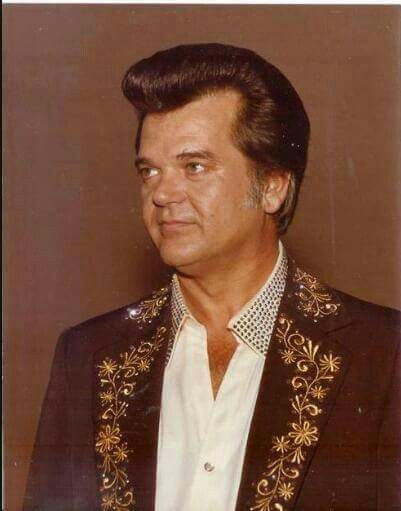A Moment of Escape Woven in Denim and Desire

When Conway Twitty released “Tight Fittin’ Jeans” in 1981, it wasn’t just another chart-topping country single—it was a sultry, cinematic vignette of longing and fleeting identity. Taken from the album Mr. T, the song ascended swiftly to the top of the Billboard Hot Country Singles chart, becoming yet another Number One feather in Twitty’s already brimming cap. At this point in his storied career, Twitty was no stranger to success—by 1981, he had already secured his place as one of country music’s most consistent hitmakers. Yet “Tight Fittin’ Jeans” stands out not merely for its commercial triumph but for the subtle, wistful ache that lingers beneath its playful exterior.
On the surface, “Tight Fittin’ Jeans” is a honky-tonk tale told from the vantage point of a seasoned barroom observer—a cowboy who notices a woman who clearly doesn’t belong in the world she’s chosen for the night. She wears tight jeans and high-heeled boots, disguising a more refined past hinted at by her mannerisms and conversation. The narrator quickly deduces that she’s from “another world,” one of privilege or sophistication, perhaps escaping the suffocating expectations that come with such a life. The song’s central tension lies in this duality: a woman caught between who she is and who she wants to be—if only for one night.
Twitty’s delivery is masterful—his voice imbued with empathy and admiration rather than conquest. He doesn’t leer; he observes. His tone is gentle, almost reverent, as if he understands that what passes between them is more than physical attraction—it’s a quiet rebellion against confinement. There’s no moralizing here, only acknowledgment: sometimes people need to shed their prescribed roles to remember what freedom feels like.
Lyrically, the song is lean but evocative. Lines like “she tried to hide the fire inside / but she just let it burn” speak volumes without ornamentation, capturing an emotional truth that resonates far beyond any honky-tonk setting. And while the title might suggest novelty or light-heartedness, there’s something deeply poignant at play—a meditation on how fleeting liberation can feel when real life waits just outside the barroom door.
Musically, “Tight Fittin’ Jeans” straddles the line between country and pop with a polished ease typical of Twitty’s early ‘80s output. The arrangement is unhurried but deliberate—built around a steady groove that mirrors the simmering tension of the narrative itself. Steel guitar swells like sighs between verses, while the rhythm section keeps time like a ticking clock reminding both characters that their moment together is as ephemeral as it is intoxicating.
In retrospect, this song endures not simply because it topped charts or garnered airplay—but because it captured a universal longing: to be seen not as society expects us to be, but as we wish we could become, even if only for one night under neon lights and whispered confidences. In “Tight Fittin’ Jeans,” Conway Twitty didn’t just tell a story; he offered sanctuary—for his characters and for anyone who has ever worn clothes that didn’t quite fit their spirit.